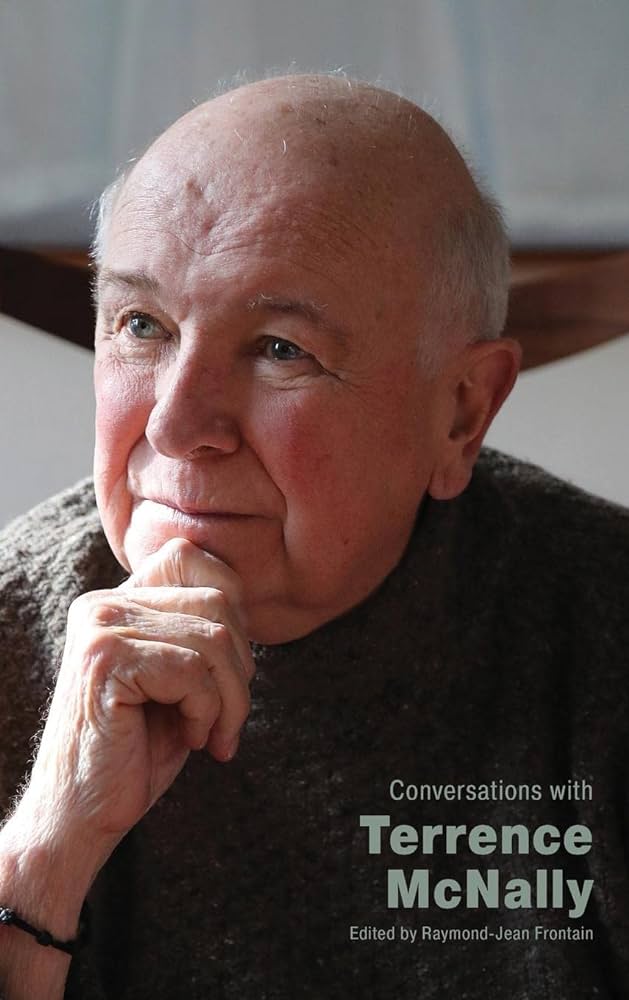 CONVERSATIONS WITH TERRENCE McNALLY
CONVERSATIONS WITH TERRENCE McNALLY
Edited by Raymond-Jean Frontain
Univ. Press of Mississippi
208 pages, $25.
DURING HIS LIFETIME, Terrence McNally saw seventeen of his plays and musicals premiere on Broadway, and along the way he developed a tenacity and maintained a relevance that has eluded most American playwrights in their later years. Conversations with Terrence McNally, edited by Raymond-Jean Frontain, helps to illuminate a writer whose work has not always shown up on the literary radar of critics and tastemakers.
Within these nineteen interviews from 1974 through 2018 (McNally died from Covid-19 at age 81 in March of 2020), there is naturally some repetition of his origin story and certain incidents that serve as landmarks in his development as an artist. Especially memorable is when his parents in Corpus Christi, Texas, decided to listen to Saturday afternoon football games in their car so that adolescent Terrence could hear the Metropolitan Opera on their good radio, direct the operas on miniature cardboard stages, and turn the volume up as loud as he pleased.
While the most famous gay playwrights of the 1960s—Tennessee Williams, William Inge, and Edward Albee—remained professionally in the closet, McNally never hid his homosexuality.
Thomas Keith contributed a chapter on Robert Burns and Frederick Douglass to The Oxford Handbook of Robert Burns (2024).






